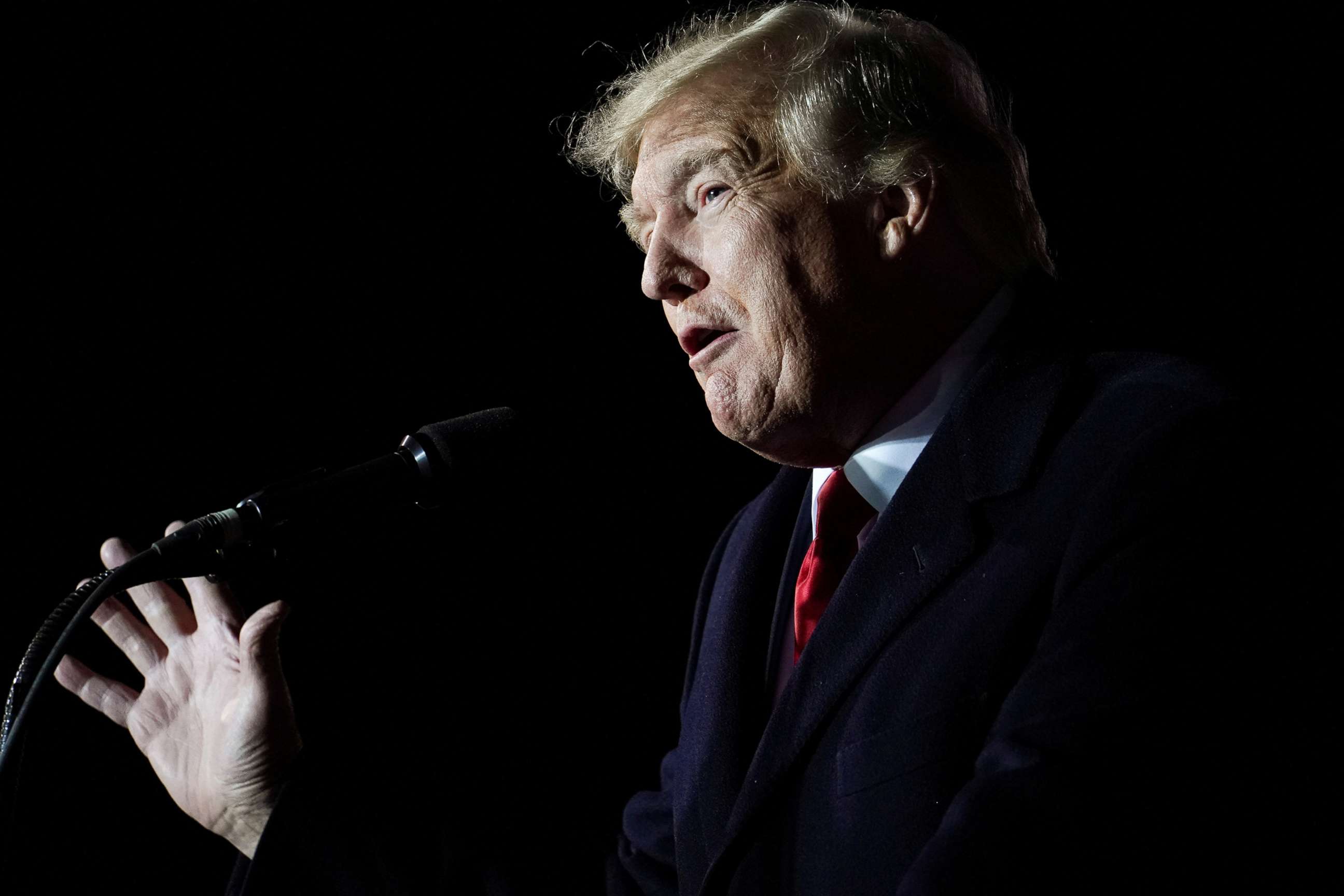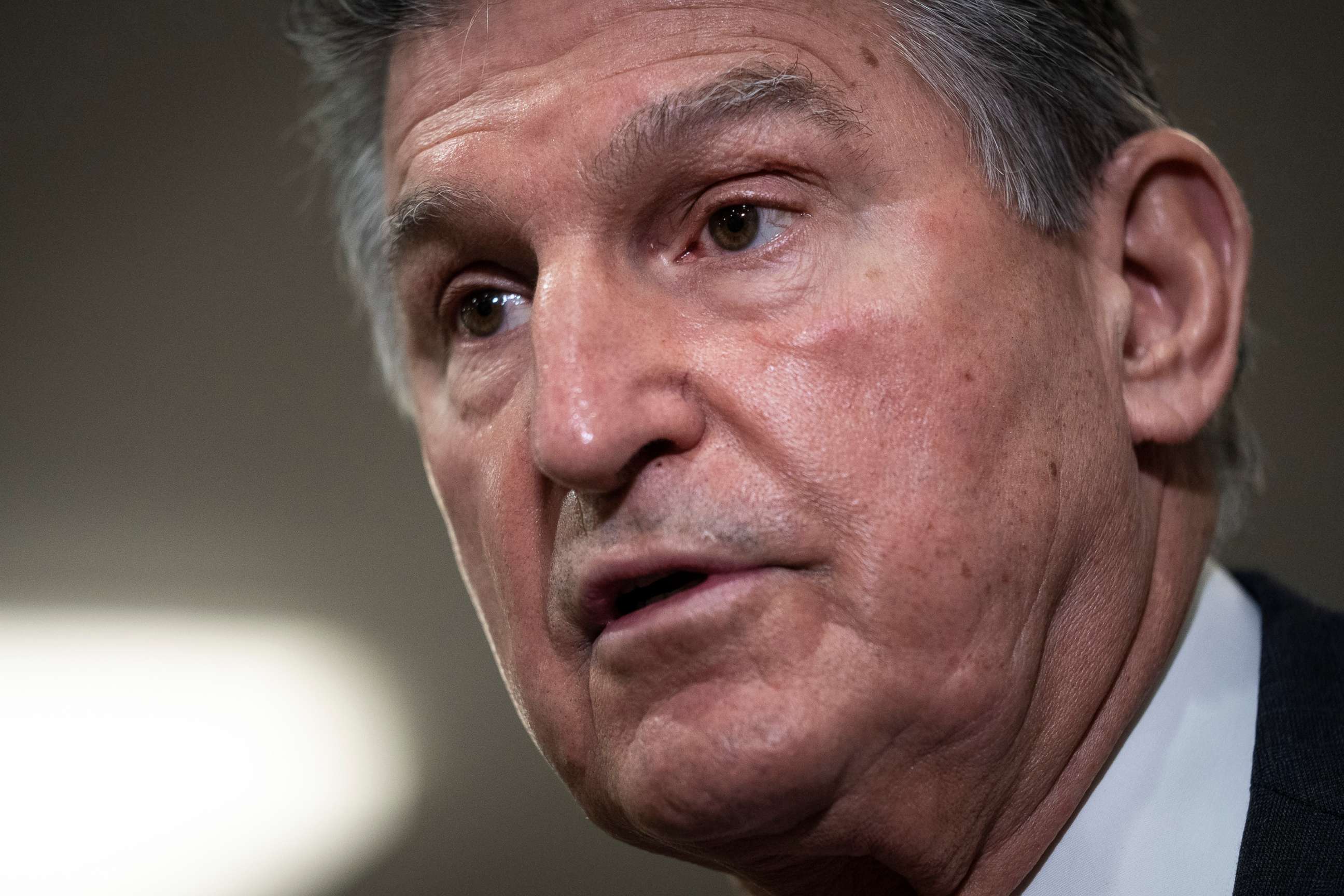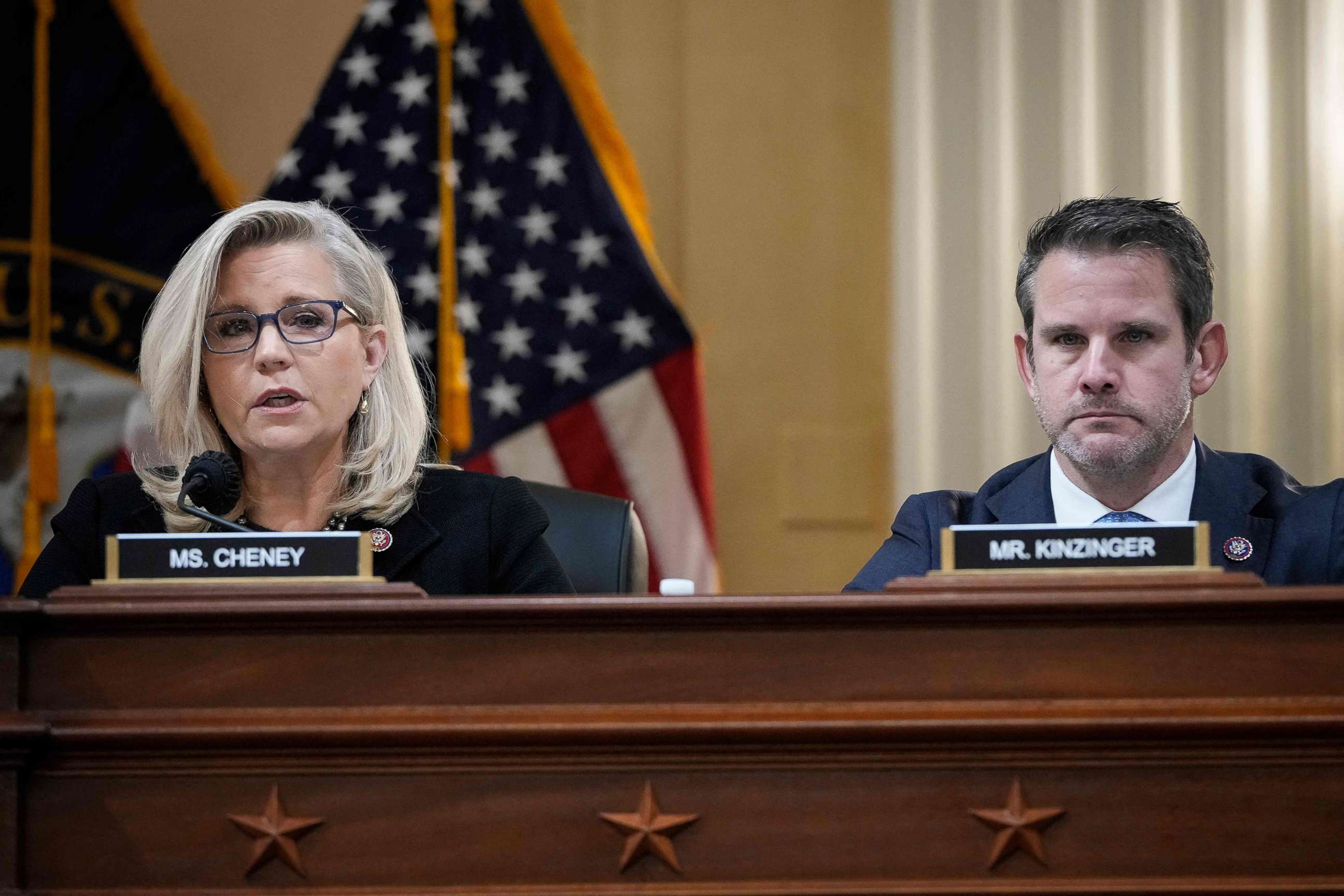Paths ahead grow messier for GOP: The Note
The segment that wants a clean break with Trump is small and getting smaller.
The TAKE with Rick Klein
Given former President Donald Trump's loyalty demands and the sharp reactions his name continues to bring, it's tempting to think of the Republican Party as split between all-in Trump loyalists and never-Trump absolutists.
Recent events, though, have highlighted a third path for the GOP that's somewhere in between, while not at all registering as a moderate position on any traditional political scale. All three lanes, if that's what they wind up being, face futures clouded by dynamics beyond party leaders' control -- and by the actions of Trump himself.

Former Vice President Mike Pence put his lot with the somewhere-in-between crowd, with his flat assertion Friday that "President Trump is wrong" that any individual has or should have the power to "overturn" an election.
There will be no mistaking Pence for a never-Trumper, as he casts Jan. 6 as a "dark day" but no cause for a course correction. The segment of the party that wants a clean break with Trump is small and almost certainly getting smaller, thanks in part to the former president's continued lies and his efforts in ongoing primaries.
The Republican National Committee, meanwhile, acted out of fealty to Trump in condemning the Jan. 6 committee and the two GOP House members who serve on it. Yet the obvious peril of being too close to Trump fueled backlash to the RNC resolution suggesting that what happened Jan. 6 constituted "legitimate political discourse."
In talking points distributed after the resolution passed on Friday, RNC officials that their "one mission" is electing more Republicans. It's hard to see how that mission is being advanced so long as Republicans are attacking and condemning themselves.
The RUNDOWN with Averi Harper
Sen. Lisa Murkowski, R-Alaska, and Sen. Joe Manchin, D-W.Va., a pair of senators who often buck their respective political parties, have publicly endorsed each other's reelection efforts -- a display, though largely performative, of bipartisanship in a deeply divided Washington.
"I'm endorsing my dear friend Lisa Murkowski. Alaska could only be so lucky to have her continue to serve them," said the West Virginia Democrat of Murkowski.
During this midterm election year, Manchin's endorsement of Murkowski is more significant than Murkowski's of Manchin. Murkowski is facing a Trump-backed challenger amid the fallout from her vote to convict former President Donald Trump in his second impeachment trial, while Manchin isn't up for reelection until 2024.

On CNN, the senators offered their views on what would restore bipartisan working relationships on Capitol Hill, the status of the massive Build Back Better spending plan (it's still dead, according to Manchin) and the possibility of passing the legislation in smaller pieces. They also defended their collective push to reform the Electoral Count Act.
"Some are going to criticize it for not being enough. Others will say too much. So I kind of have said, 'we're going to take the Goldilocks approach here, we're gonna try to find what's just right,'" said Murkowski. "And it's not gonna be just right for everybody, but will it be a step ahead? Will it be important for the country? Yeah."
The TIP with Alisa Wiersema
Following the RNC's decision to censure Reps. Liz Cheney and Adam Kinzinger, the cracks among Republicans continue to deepen while keeping both lawmakers in the political spotlight.
In an editorial published over the weekend, the conservative National Review called the RNC's move "morally repellent and politically self-destructive." That sentiment was also expressed by Sens. Mitt Romney of Utah and Bill Cassidy of Louisiana, who were among the seven Senate Republicans to side with Democrats in their votes to convict Trump on an impeachment charge of inciting the Jan. 6 insurrection.

Cheney remains the most high-profile Republican critic of the former president and his imprint on the GOP. However, as she navigates her 2022 reelection campaign, the former House Republican Conference Chair may face a separate set of issues from voters given that showing up for constituents at home presents different challenges than representing them in Washington.
In an interview with Fox News Sunday, Republican Sen. John Barrasso of Wyoming said he believes constituents want to move on from the political aftermath of Jan. 6.
"We're going to have a very spirited primary here," he said, adding, "Liz is going to have to travel the state and make her case to the voters of Wyoming if she intends to get reelected."
NUMBER OF THE DAY, powered by FiveThirtyEight
30. That's the rough percentage-point margin by which former President Donald Trump defeated President Joe Biden in rural and small-town America in the 2020 presidential election. And while that's no surprise given how much rural America has lurched to the right in the last 15 years or so, there is still a sizable number of Democrats who call rural America home. In her latest "Political Outliers" column, FiveThirtyEight's Alex Samuels writes about what motivates these rural Democrats.
THE PLAYLIST
ABC News' "Start Here" Podcast.
"Start Here" begins Monday morning with ABC's Ike Ejiochi on the shooting that prompted a new moratorium on no-knock warrants in Minneapolis. Then, CTV's Rachel Aiello talks about Canadian trucker protests and what impacts they have in the U.S. And, ABC's Sam Sweeney explains calls to put convicted unruly airline passengers on the no-fly list.
WHAT YOU NEED TO KNOW TODAY
Download the ABC News app and select "The Note" as an item of interest to receive the day's sharpest political analysis.
The Note is a daily ABC News feature that highlights the day's top stories in politics. Please check back tomorrow for the latest.




